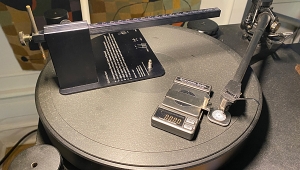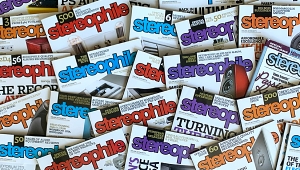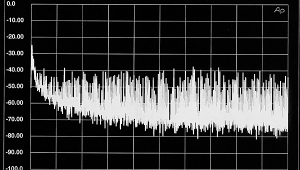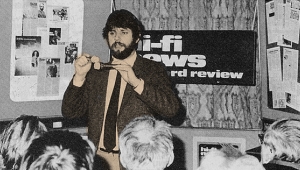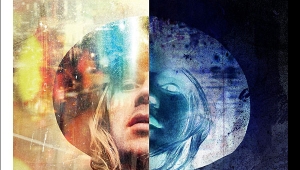| Columns Retired Columns & Blogs |
40 Years of Stereophile: The 40 Essential Albums ROCK/POP
ROCK/POP
THE BEATLES: The Beatles ("The White Album")
Apple (1968)
The argument over which Beatles album is most influential is long and, ultimately, unsolvable. While Sgt. Pepper's Lonely Hearts Club Band is where the band's revolution in thought and approach took wing and soared, Revolver is where the transition from pop band to something much more artistically serious began. Yet Rubber Soul is a better collection of tunes than Revolver. And let's not forget that Abbey Road is as gleaming and perfect an album as rock will ever know. All that said, "the White Album" is the richest entry in the band's still astonishing canon. If you're mining for inspiration, there's more ore here than anywhere else. Yes, cracks were appearing between the personalities at this time, but "Dear Prudence," "Blackbird," "Piggies," and so many others constitute the deepest, most resonant collection of songs the Beatles recorded.
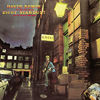 DAVID BOWIE: The Rise and Fall of Ziggy Stardust and the Spiders from Mars
DAVID BOWIE: The Rise and Fall of Ziggy Stardust and the Spiders from Mars
RCA/Virgin (1972)
Beside Mick Ronson's guitar heft, the song cycle Ziggy Stardust is notable as the finest expression of glam rock. And then there's the passion obviously felt for the project by Bowie, for whom the line between the fictional Ziggy and his own life vanished. Androgynous, preening, self-obsessed, and made up like a space hooker, Bowie was Ziggy for a time. He also still had the nasal whine that powered "Suffragette City" and "Hang Onto Yourself." In music, the official end of the peace-and-love sixties.
ELVIS COSTELLO: My Aim is True
Columbia/Rhino (1977)
Hey, maybe all rock critics do look like Declan Patrick Aloysius MacManus (so said brainiac David Lee Roth), but his blend of dense Dylanesque lyrics and punky, snarly rock music—called New Wave—was a revelation in the late '70s, when heavy metal ruled (hence Roth's envious comment). This debut album contains "Watching the Detectives," "Welcome to the Working Week," and "Alison," whose chorus of "Whooooa-ooooa Alison / I know this world is killing you / Whoooooa Alison / My aim is true" inspired countless dorm-room singalongs. While his 1986 masterwork, King of America, is a close second in terms of songwriting, this album's brashness and out-of-nowhere quality make it a knockout.
 BOB DYLAN: Blood on the Tracks
BOB DYLAN: Blood on the Tracks
Columbia (1975)
As with the Beatles, the choice of most influential Bob Dylan album has been known to set off, shall we say, passionate arguments. This one is more of a two-sided war, the choice being between 1966's Blonde On Blonde and 1975's Blood on the Tracks. The decision here rested on which album contained the best single song, and "Simple Twist of Fate" fits that bill for me, with "Tangled Up in Blue," "Idiot Wind," and "Shelter from the Storm" not far behind. Although Dylan junked an early version of this record and re-cut it with a band of Minnesota musicians, it still rates as one of his finest collections of originals.
STEVE EARLE: Guitar Town
MCA (1986)
While Gram Parsons' two original solo albums, GP and Grievous Angel, started the whole country-rock genre, this shocker, from Nashville no less, turned country music on its head. Soon after its release, Lyle Lovett, Dwight Yoakam, kd lang, and other left-of-center acts had record deals and careers. Suddenly, being edgy and a rocker was cool on Music Row, which had been floundering for years. The funny thing is that it's the slow songs here, the sad, non-rockin' stuff, that are the sweetest: "Fearless Heart," "My Old Friend the Blues," and "Someday" are each as good a song as has ever been waxed in Nashville or anywhere else.
FUNKADELIC: One Nation Under a Groove
Warner Bros./Priority (1978)
Sure, George Clinton is a little fried now, but back in the '70s, when he simultaneously ran two soul-funk projects—the more accessible Parliament and the spacier Funkadelic—he was the high priest of the genre. Prince, Rick James, even James Brown in later years "borrowed" ideas from this album and its equally potent sister, Uncle Jam Wants You. Bassist William "Bootsy" Collins and keyboardist Bernie Worrell add much to "Who Says a Funk Band Can't Play Rock" or "Promentalshitbackwashpsychosis Enema Squad (The DooDoo Chasers)." Out of print for years, both were reissued in 1993 by Priority.
 MARVIN GAYE: What's Going On
MARVIN GAYE: What's Going On
Motown (1971)
An early and still one of the best concept albums, this soul classic is also a deeply political record, with songs addressing Vietnam, the environment, and civil rights. While Gaye's irresistible 1973 single, "Let's Get It On" (from the album of the same name), may be sexier, "Mercy, Mercy Me (The Ecology)" is more heartfelt. Gaye was arguably the smoothest soul singer of all time. This album is part of the proof.
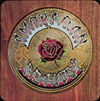 THE GRATEFUL DEAD: American Beauty
THE GRATEFUL DEAD: American Beauty
Warner Bros. (1970)
Improvisation in rock music began with the Dead, but for those who think they sometimes went too far in that direction, there's this 1970 session. Inexpensively made and full of songs that would become permanent entries in their concert set lists, American Beauty gets the nod over the rest of their overworshipped catalog because guitarist Jerry Garcia doesn't fly off into an endless solo on any of the cuts. Instead, he plays gorgeous pedal-steel and tasty guitar fills throughout, and psychedelia is soft-pedaled in favor of a rootsier sound in tracks like "Sugar Magnolia," "Friend of the Devil," and "Truckin'." This was Ron "Pigpen" McKernan's last studio album with the band.
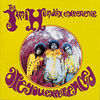 JIMI HENDRIX EXPERIENCE: Are You Experienced?
JIMI HENDRIX EXPERIENCE: Are You Experienced?
Reprise (1970)
The Hendrix catalog is rich in albums that could be named his "most influential." Are You Experienced? gets the nod because it was the first time audiences heard his inimitable gifts, and was the platform from which he sprang into superstardom. "Foxy Lady" displayed Hendrix's raw sexuality, but "Purple Haze" may be the most influential hard-rock song of all time.
MICHAEL JACKSON: Thriller
Epic (1982)
Seven Top 10 singles, 37 weeks at No.1, 12 Grammy nominations and eight wins, the Moonwalk, Vincent Price's voiceover for the then-exorbitant $160,000 video of "Thriller," MJ as the first black artist to be played to death on MTV...and 45 million copies sold. Thriller, the second of Michael Jackson's projects with producer Quincy Jones, is the biggest-selling album in the history of the record business—a monster in terms of sales and cultural impact whose like pop music will probably never see again. But deep into each side there still are songs, albeit soul-lite pop tunes, that the radio didn't ruin—like "P.Y.T. (Pretty Young Thing)" and "Wanna Be Startin' Something."
ELTON JOHN: Goodbye Yellow Brick Road
MCA (1973)
From the opening sweep of wind and tolling of church bells that precede "Funeral for a Friend," this album is a grand, rich concoction of pop riches. Like the Beatles' "White Album," this 17-song collection is the richest of the many albums recorded during the still-enduring collaboration of Reggie Dwight and Bernie Taupin. Adapting an American icon for its title, the album's variety is what makes it a milestone. >From the groaning Mellotron of "Dirty Little Girl" and the spiny ARP synthesizer in "All the Young Girls Love Alice" to the banjo of "Social Disease" and Davey Johnstone's growling guitar in "Saturday Night's Alright for Fighting," it's unabashedly great pop music.
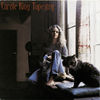 CAROL KING: Tapestry
CAROL KING: Tapestry
Ode (1971)
After a long and successful career as a songwriter with her husband Gerry Goffin ("Will You Still Love Me Tomorrow"), Brooklynite King's second album singing and playing her own songs is an ambitious collection whose emotions and worldview swing from sad resignation to expansive profundity: "You've Got a Friend," "So Far Away," "It's Too Late," and the crowning glory, "(You Make Me Feel Like) A Natural Woman." No.1 for 15 weeks and a winner of four Grammys, Tapestry went on to sell 15 million copies, and encouraged female singer-songwriters to step into the light.
- Log in or register to post comments

